
“Not long ago, a child returned to school after being absent for some days only to be harshly scolded and beaten by the teacher. The student stopped going to school altogether. When we found out what happened, we acted fast – we spoke to the parents, the child, and then the school. The child is back in school again.” This statement was made by David Morvin, also a teacher, and the “we” he is talking about is the Village Child Development Committee (VCDC) of the Kotiyagala Estate of the Bogawantala Tea Estates PLC in Nuwara Eliya district.
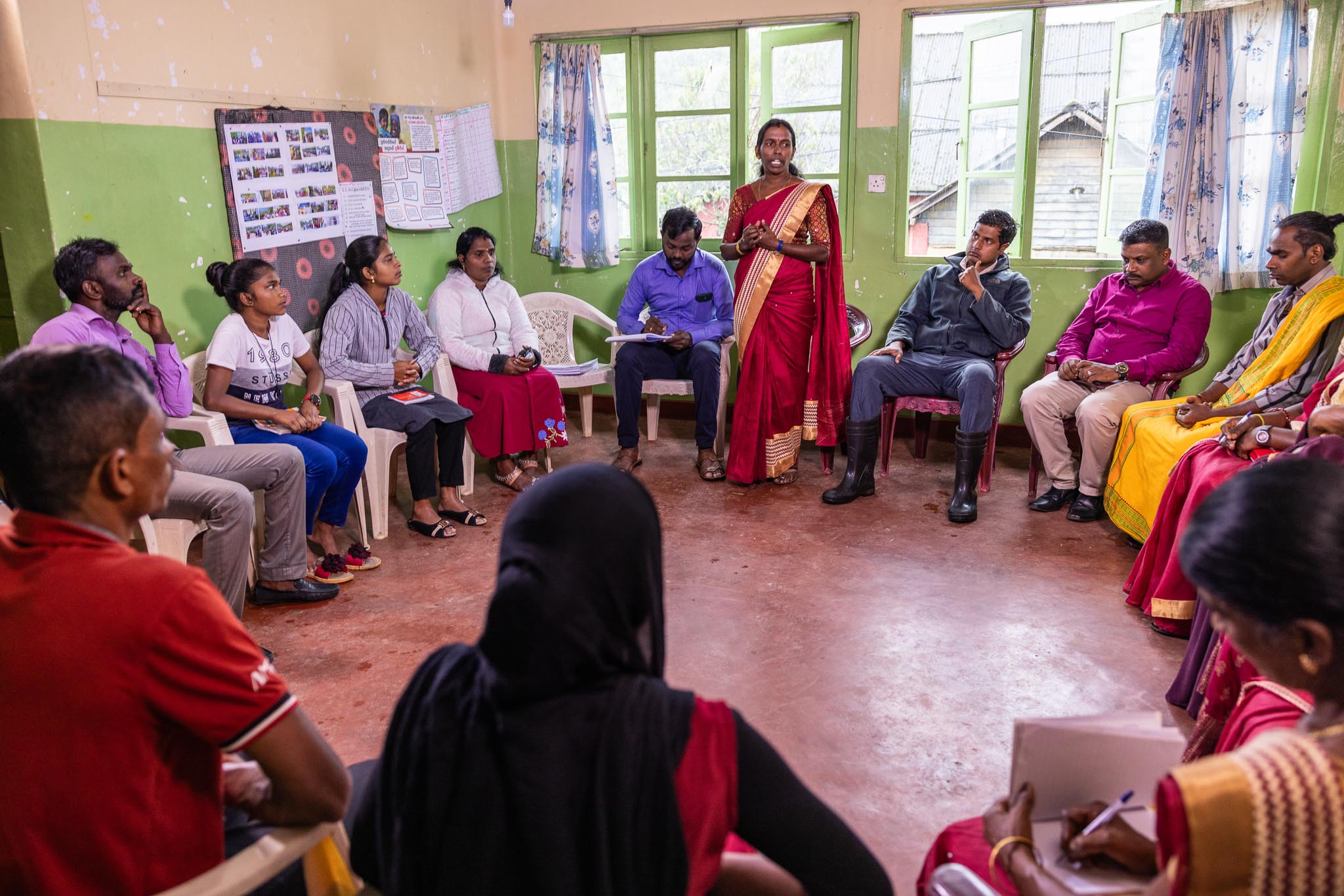 The Kotiyagala Village Children’s Development Committee formally meets every month
The Kotiyagala Village Children’s Development Committee formally meets every month
The VCDC is a vital support mechanism introduced by the government to deal with child-related issues at ground level. The committees are integral to the national childcare and protection system, with members including parents, children, school officials, protection officers, public health midwives, and others. They engage with relevant government officials to mobilise services based on needs and priorities. Yet, like many other community-based support structures, with time, VCDCs do not always function well and sometimes do not function at all. Kotiyagala is a striking example of a VCDC that continues to be effective and sustain momentum. The estate’s welfare officials are also active members.
Community-based child protection mechanisms are especially important in the plantations because the number of government officials serving the areas is limited and it is physically impossible for them to go to every estate, every location, on a regular basis. “We are intent on forming more links with government officials, we want to keep increasing government engagement,” says Sellaiyah Devaraj, Welfare Officer of the Kotiyagala Estate and member of the VCDC.
A.N. Ajeera Bebe, Grama Niladhari and leader of the group, believes that people’s involvement, their cooperation, is key. “Community members believe in the VCDC, they are part of it. This is everybody’s responsibility. That’s one of the reasons we have been able to achieve so much.”
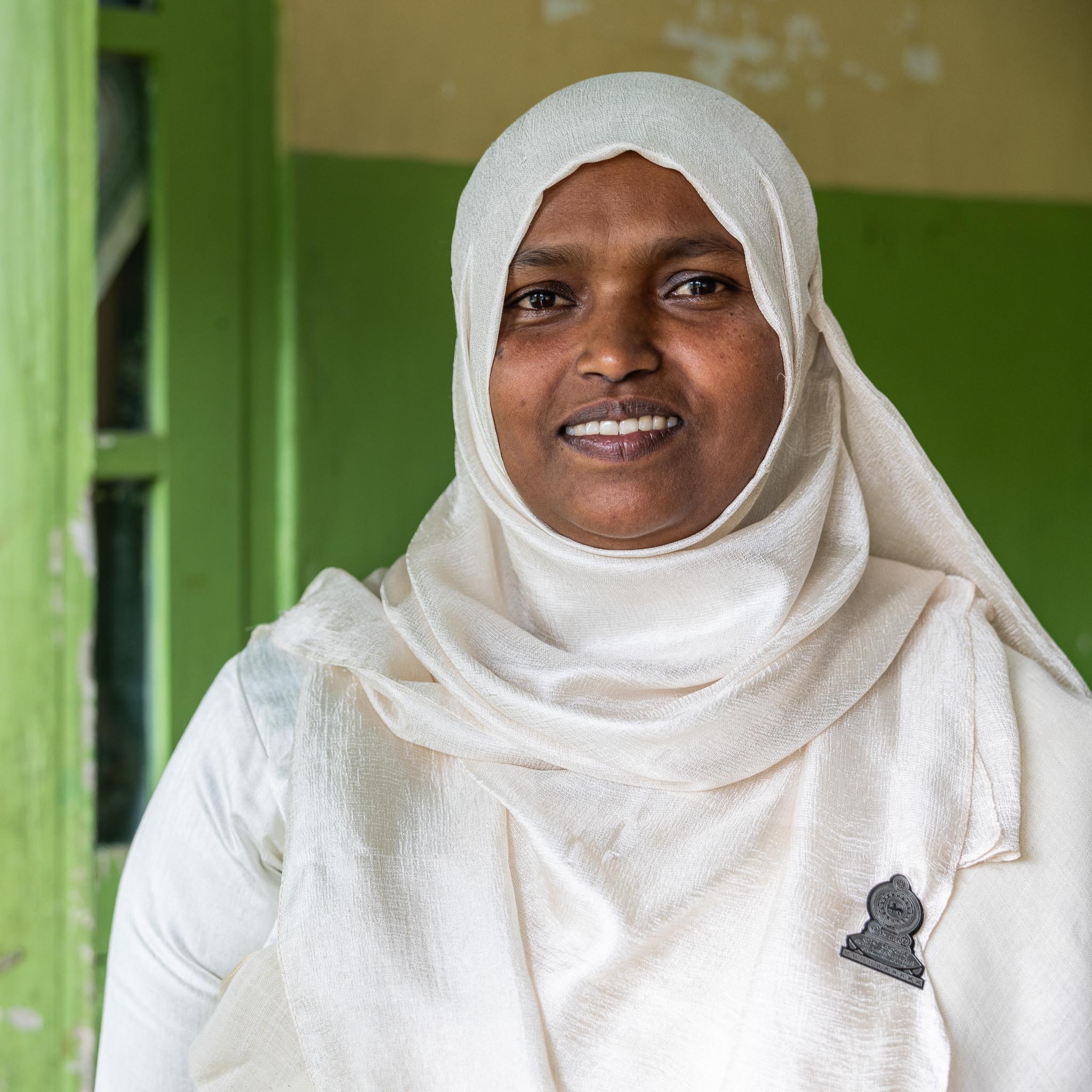
A.N. Ajeera Bebe says that the VCDC works well because
people work together and are serious about what they do
“As a member of the VCDC, I can talk freely about our problems,” says Aadesh,* 12. “I am here to represent children, I share our experiences and points of view. For example, I feel it is important for parents to be more concerned about their children’s education. Many parents do not pay enough attention. Children need to be encouraged to study.”
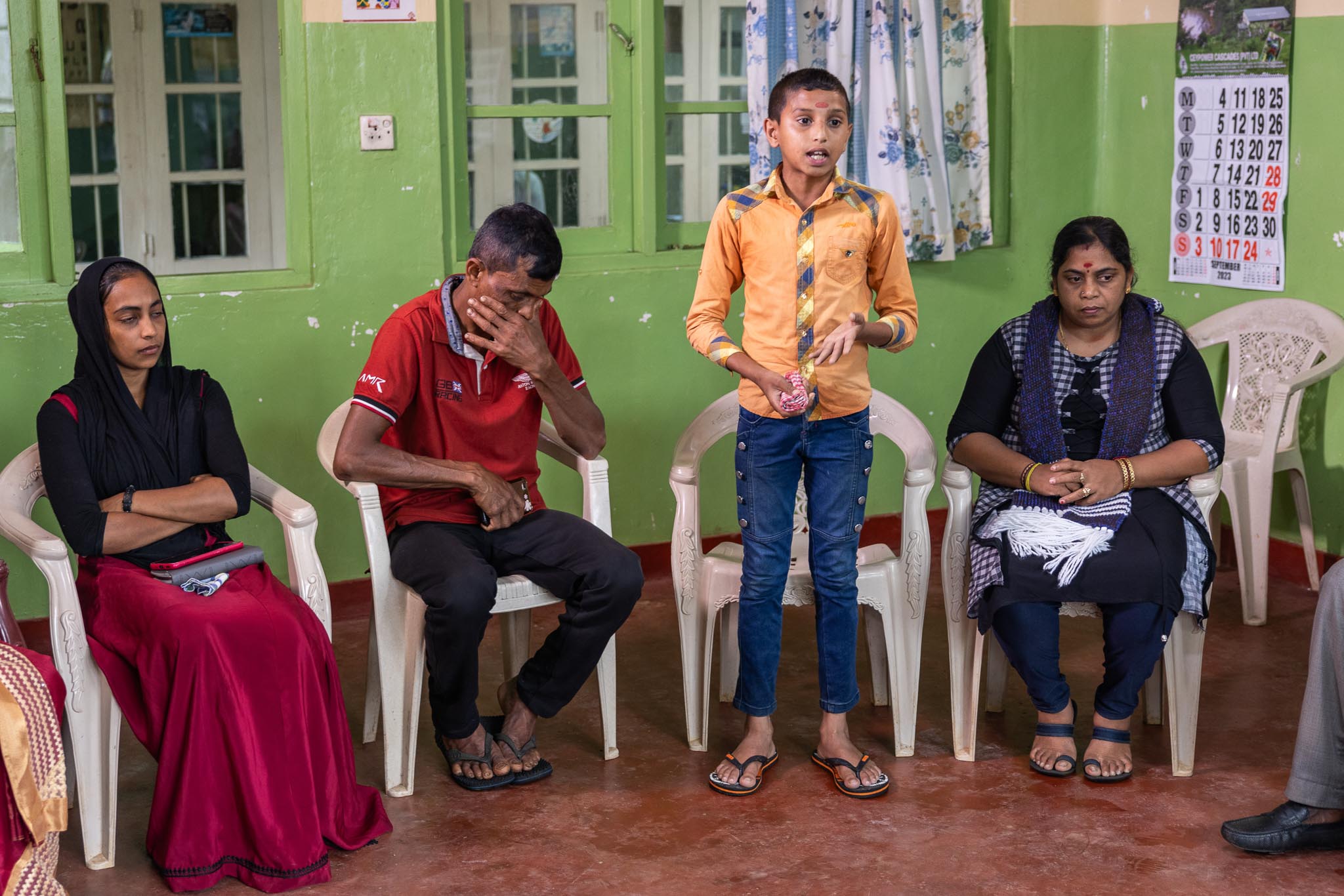
Aadesh, 12, is the newest member of the VCDC
Shanthi,* 16, is worried about students dropping out of school. “Children stop going to school for different kinds of reasons. When they are poor and must work, for example. Everyone needs to understand these problems.”
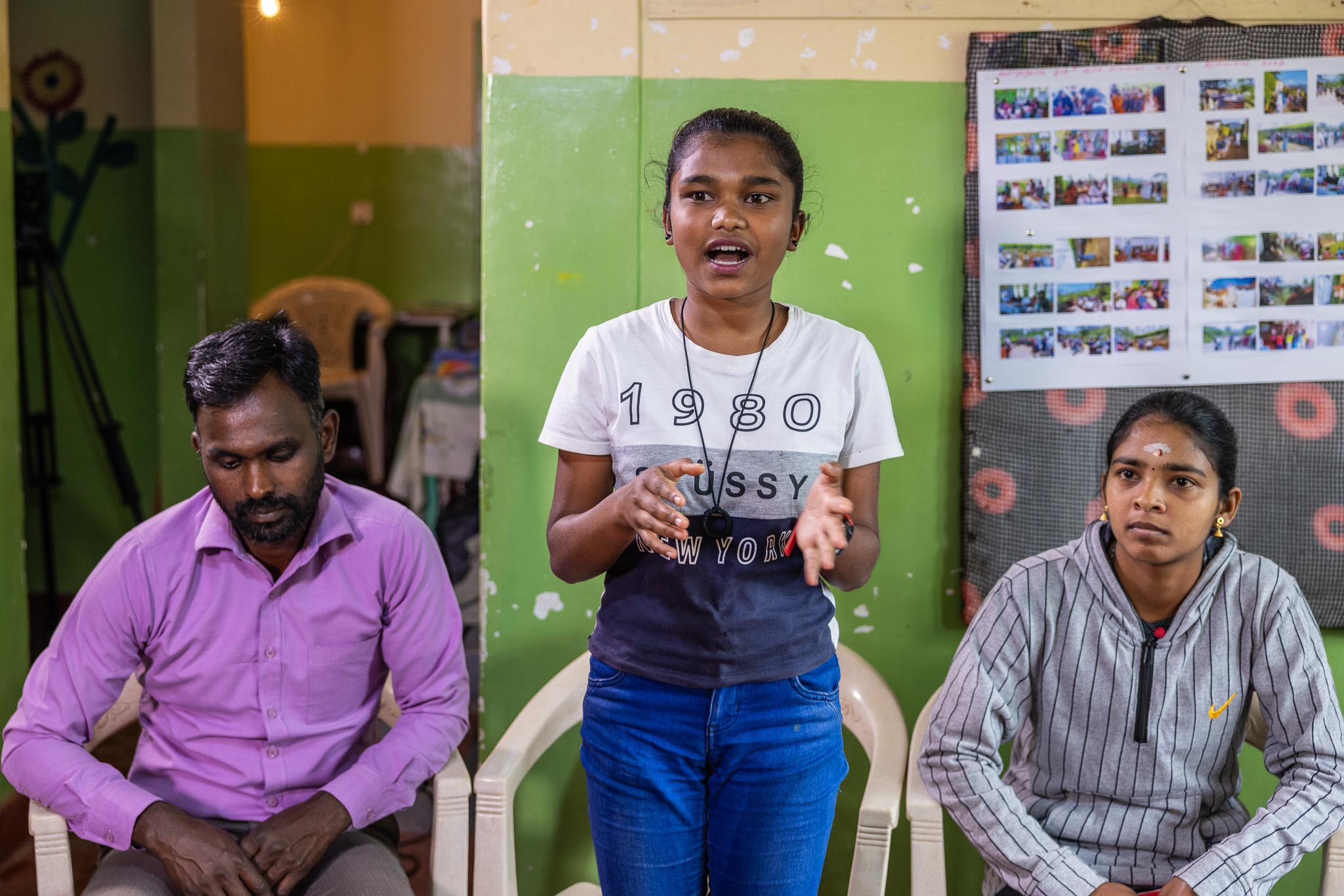
Shanthi, 16, wants people to understand the complexity of children’s well-being
The Kotiyagala VCDC received the best VCDC award for the Ambagamuwa Divisional Secretariat in the Nuwara Eliya district. Bogawantalawa Tea Estates is a member of the Mother and Child-Friendly Seal for Responsible Business initiative of The Centre for Child Rights and Business (The Centre). Members of the Seal Initiative are committed to improving the lives of children, women, and families in the plantations by listening to the communities to understand their priority issues and initiating action for long-term change.
In 2018, the first five tea companies adopted a child protection policy that was developed by Save the Children for regional plantation companies. Bogawantalawa Tea Estates, one of the first companies to sign up, was supported by Save the Children to operationalise the policy. "Establishing VCDCs was one of the standards under the child protection policy," says Thilini Lakshika, Seal Initiative Manager at The Centre and former Save the Children Senior Project Manager, who was responsible for monitoring the functionality of the newly established VCDCs. Through training, committee members gained knowledge on child rights and child protection issues, identifying vulnerable children, assessing and mitigating risks, making referrals to relevant government officials, and monitoring the outcome in a measurable manner.
Access to quality education is a major challenge for plantation communities. In terms of child protection, corporal punishment in schools has been a long-standing problem, but additional issues related to the home environment also persist. The Kotiyagala Estate has decided to prioritise issues related to children’s education and well-being. “We have been working with the VCDC and with the schools in the area to reduce the number of school dropouts, to get children back to school, and to address other problems they experience,” says Rehan Madena, Senior Assistant Manager of the Kotiyagala Estate. “Based on a request from the VCDC we rehabilitated an unsafe bridge that children were forced to use to go to school. The VCDC has brought the estate management and community together.”
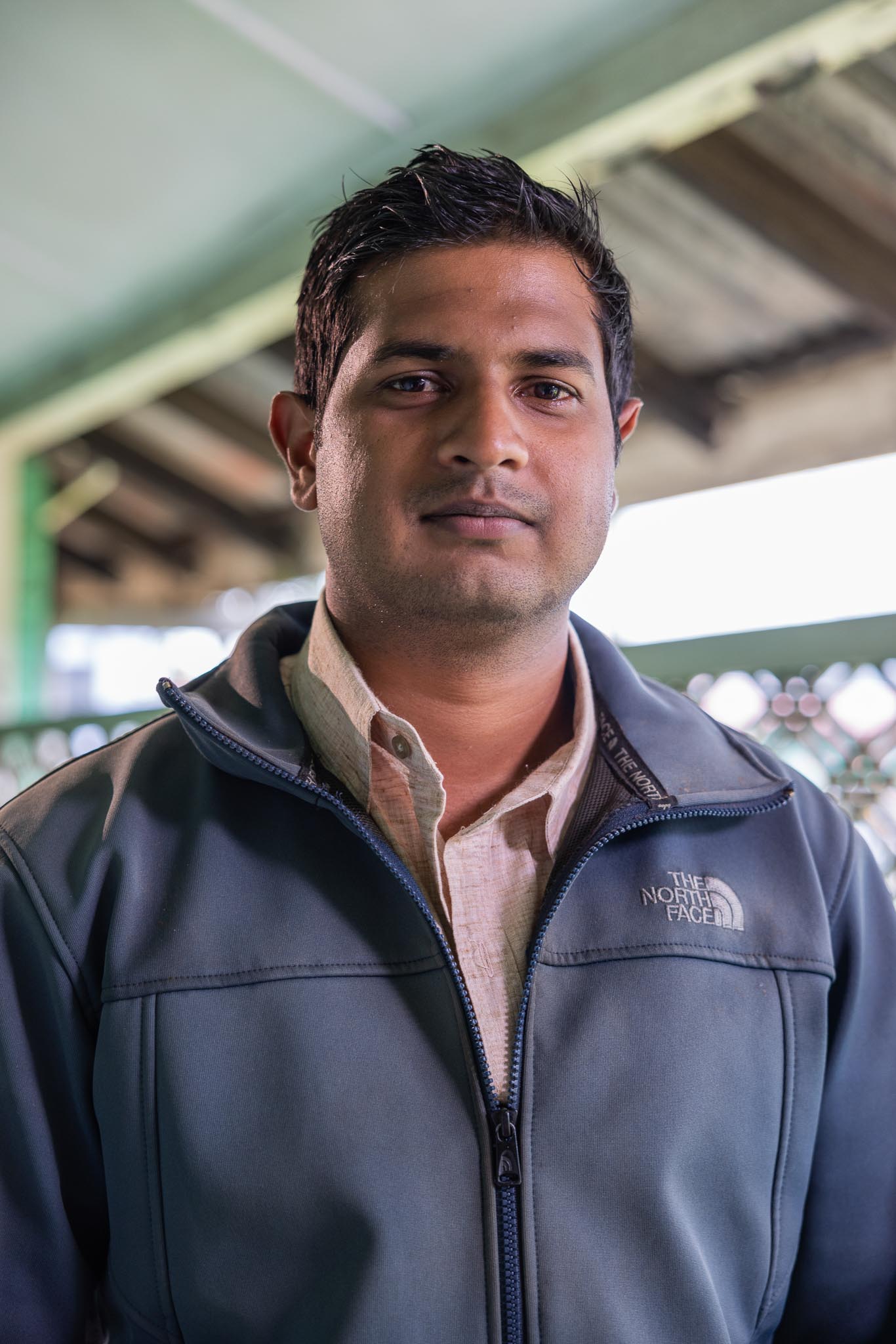
Rehan Madena, Senior Assistant Manager of the Kotiyagala Estate
recognises that the benefits of a VCDC are multi-faceted
How has the Kotiyalaga VCDC prevailed, where many others failed? It is noteworthy that the primary reason that the committee members felt that their VCDC continues to be functional in Kotiyagala is because of the company and estate management’s commitment to sustaining the community based child protection mechanism through facilitating meetings, investing time of the estate’s welfare officials to undertake the work of the committee and ensuring new members are trained on core child protection principles and VCDC responsibilities, following up on the key recommendations of the committee and taking prompt action wherever needed to support a child at risk. Moreover, the VCDC is also connecting with development agencies and non-governmental organisations to address issues related to poverty that are intrinsic to children’s well-being.
* The names of the children have been changed to maintain their privacy.
The Mother and Child-Friendly Seal for Responsible Business is a collaborative initiative between The Centre for Child Rights and Business, Save the Children, and key stakeholders in the Sri Lankan tea industry. It aims to improve the well-being of families in Sri Lanka’s tea-growing communities through sustainable and meaningful investments by business entities in the tea supply chain (buyers, brands, plantation companies).
More information:
Website: https://childrights-business.org/SealInitiative Email: info.SL@childrights-business.org
By using this website, you agree to our use of cookies. We use cookies to provide you with a great experience and to help our website run effectively.